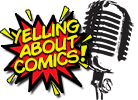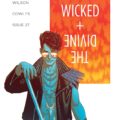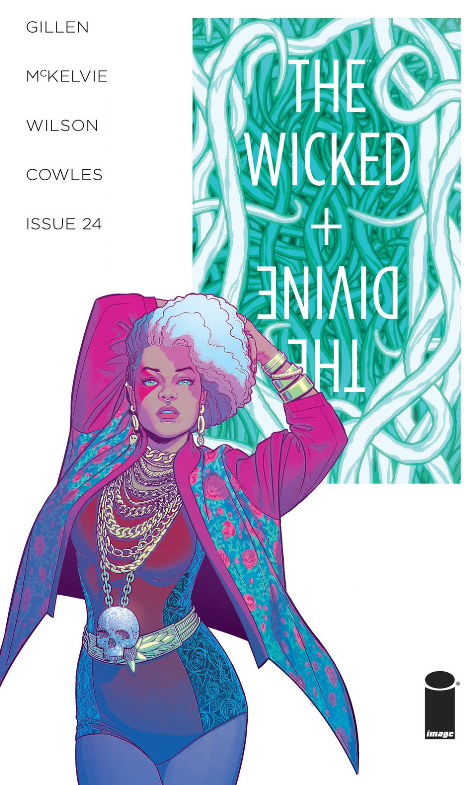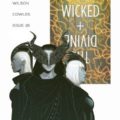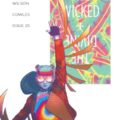The Wicked and The Divine #23 Review — Interview with a God
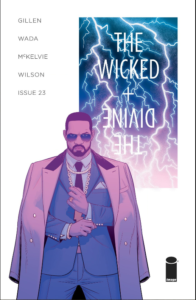 After the last issue of The Wicked and The Divine, as Persephone and the remaining pantheon stood over Ananke’s corpse, and Persephone mused they could now do whatever they wanted, I posed a simple question: Where does the series go from here? The Wicked and the Divine 23 is finally out, and I’m not sure it answers the question. In fact, this is the first issue in the series’ run that left me with a large sigh and “meh” feeling.
After the last issue of The Wicked and The Divine, as Persephone and the remaining pantheon stood over Ananke’s corpse, and Persephone mused they could now do whatever they wanted, I posed a simple question: Where does the series go from here? The Wicked and the Divine 23 is finally out, and I’m not sure it answers the question. In fact, this is the first issue in the series’ run that left me with a large sigh and “meh” feeling.
The issue is set up in an admittedly clever manner: author Kieron Gillen is the editor of a gods-devoted magazine, Pantheon Monthly. With Ananke no longer imposing secrecy and seclusion, the gods are now free to be pop-culture personalities; they are no longer merely cult icons within a certain scene. The magazine features advertisements for cologne and phones, and implies a deeper connection and interaction with the public than ever before. Most interestingly, the comic features real-world writers (Leigh Alexander, most notably) pulling double-duty as both themselves, and writers within this fictional world, as they interview the pantheon.
Baal has, in the time since Ananke’s murder, been busy asserting both leadership and the clear message that everything is OK, and all is well. Ananke has been exposed, to the world, as a murderer, but Baal assures the public that her death was for the better. Except, the interviewers reveal, through observation and the gods’ words, there is more than a little unease throughout them. For one thing, no one knows if the curse (the part in which they’ll be dead in a year) was Ananke’s doing, or if it still holds sway. This fear runs throughout all of the interviews, though Baal seems the least concerned by it. This could be because he’s revealed to be in a relationship with the Destroyer herself, Persephone.
Woden’s interview is both my favorite and the most frustrating. On one hand, I get that the author’s hostility toward Woden is largely tongue-in-cheek, but it feels a little too pointed, at times. Woden himself seems the most dejected of all the gods. He still shows remorse and sadness for his part in building the machine to murder Minerva, and that he didn’t see the machine’s purpose sooner is a mark against his own ego. But, as he himself freely admits, he is terrified of Persephone. Woden’s interview seems to hint that, much as fans suspected at the end of The Wicked and the Divine 22, the gods may have just swapped the witch for the devil.
The epilogue — aka “hey, here’s the important parts of the last couple of issues, just in case you weren’t paying attention” — reminds us that we still don’t really understand the full purpose of the machine, or Ananke’s designs. Remember she said “the fourth one is always the hardest.” Always. This implies, quite heavily, that this may have been standard operating procedure for several thousand years. If this doesn’t give the gods pause, it should definitely give us pause.
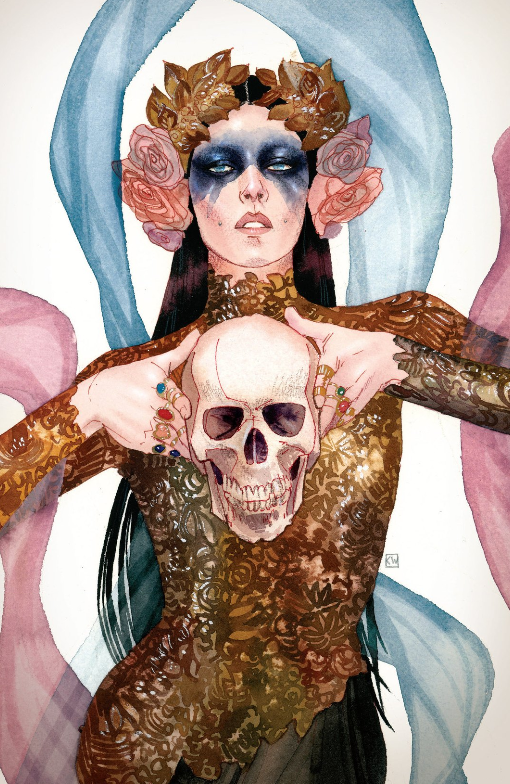
Morrigan and Amaterasu are the least changed by events. Amaterasu continues to just want everyone to get along, and to be loved. Morrigan, by contrast, has retreated deep to the Underground, presumably with her lover, and seems content to be secluded in her own little world. Through the interviews we can glean, for the most part, the gods who aren’t interviewed are continuing to just be themselves.
With all this praise, you might wondering why I said The Wicked and the Divine 23 left me feeling lukewarm, and it’s because for all its cleverness and revelation, it feels a little like a placeholder. As though Gillen wasn’t quite sure what should happen next, so we are presented with a “state of the union” address, as opposed to any progression. Yes, we know now that Woden might be working on an anti-Persephone device, some of the gods are having an identity crisis, and Persephone and Baal are now in charge, but it feels largely like style over substance. At best, it feels like an interesting, if flawed experiment, at worst it feels like an attempt to ape the long-form stylings of Jonathan Hickman or Alan Moore. The Wicked and the Divine is at its best when Gillen’s sharp, pointed dialog allows the characters to display their flamboyant personalities.
Author(s): Kieron Gillen
Artist(s): Jamie McKelvie
Publisher: DC Comics
Publish Date: 10/26/16
Acquired via Purchase
